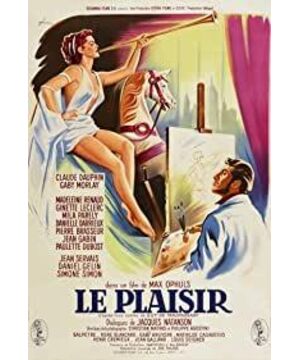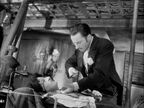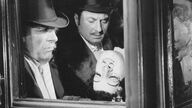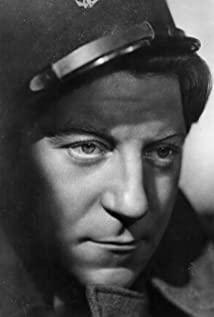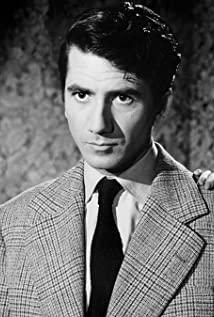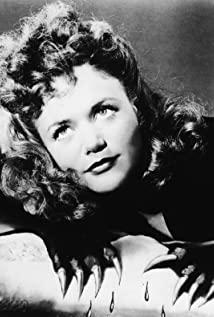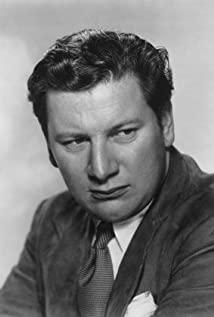Last month, I watched "Once Upon a Time in the West" because of the Shanghai Film Festival, and the duel was nearing the last moment. With the gradually stirring music and clear memories, I suddenly smelled the smell of historical gunpowder in a trance. And this time, when I saw "Joy" in the retrospective exhibition of works of Orpheus, it was clear from the beginning.
A voice-over in the opening block of black says that the best way to tell a story is to tell it yourself. He said, I like the dark, and you can imagine sitting next to you in the dark. He also said, I'm embarrassed for myself that these stories are so old and you guys are from modern...
Does it sound like an old European self-report? Europe in the dark tells its own story, embarrassed by its old and backward self. I thought: why are you embarrassed? There is also nothing to be joyful and proud of in modern times.
At the beginning of the story, the audience followed the camera and entered a very lively dance party. In the first story, the old man wears the mask of youth and still has to dance, even though he is tired of old age and heavy body. He's like an incarnation of old-time Europe, but the whole world is dancing, and everyone can't stop and ignore him. So he went to the dance despite his exhaustion, he had to dive in, the stares and wild dances in the mask that rushed into the dance floor were both desperate and passionate. I didn't see enough of that weak and powerful dance scene, and I had to find it and revisit it a few times, over and over again. Godard even included it at the end of The Book of Images. Personally, I think Orpheus made it a little too short.
Maupassant's short stories adapted by Orpheus have another flavor of the times that I have not read in the novels. Just as it is difficult for people to resist aging, an era has passed. When Orpheus set his sights on that era, what was he thinking about? And look at the second paragraph.
The town was thrown into chaos on Saturday night when a tavern (also a brothel) suddenly closed its doors. The British soldiers came to ask why the door was closed, and the French men waved their hands: No English... The quarrel escalated into a shove, and a Frenchman spread his hands and said: This is how war happens. Full of humor, but it's not just a witty joke.
Several French men with nowhere to go sat in a row watching the waves in the foggy port, saying it was beautiful, but they were still gloomy. Fighting over trivial matters like meals and taxpayer pay. The alliance temporarily formed because of boredom quickly disintegrated and fell apart because of boredom.
Where have the girls gone? After the tavern closed, they boarded the train to the countryside to attend the Holy Communion ceremony in the proprietress' hometown. The proprietress reads the newspaper on the train: The Pacific War may break out. A girl asked what the Pacific Ocean is? One of the girls named Rosa said quietly: Peace. They know nothing about war.
The carpenter brother of the proprietress who came to meet him by car is a simple countryman, and he also has the lecherous habit of french men. He kisses every girl passionately, and the younger sister said coldly, you don't need to kiss everyone like this... You The first one who should have kissed was me. He is beaming: I save the best for last. He even wished his sister's business better and better at supper prayers. Sister Anger: You can't pray to God for such a thing!
That night, these girls from the city lost their insomnia and felt that the village was deafeningly quiet. Rosa loves the little girl (daughter of the boss's elder brother) who is afraid of the night, and coaxes her to sleep, like a sister and a mother.
The next morning they all went to the Eucharist in great spirits. The children's singing touched their pure and soft hearts, and their pious tears infected the entire church, and everyone wiped away their tears.
But the good times came to an end, the girls had to go back eventually, and the clumsy carpenter couldn't stop thanking him, and even rushed into Rosa's room. On the way back, the girls were moved by the blooming wildflowers in the countryside, and the scene of singing and picking flowers on the hillside seemed like a popular Impressionist animation. The carpenter was ashamed and sincerely apologised to Rosa, undeniably innocence and respect in his crude friendship for Rosa.
When he was parting, he reluctantly chased the train and waved his hands and shouted, thinking of Jesomina in "The Road". The black top hat was also decorated with a few small flowers picked by the girls, and one of them even hung down, swaying along with his pace. He drove home in a carriage full of wildflowers, and along the same road, his back was a little lonely. The good times are over, what to do?
And the girls used flowers picked from the countryside to make the tavern so prosperous inside and out. The villagers ran to tell each other, rushed here festively and eagerly, and finally gathered to celebrate with a dance, returning to the lively and indulgent city night.
Orpheus looked back reluctantly. Through Maupassant's novels, he saw the simplicity and nobility of the dusty women of that era. The problems brought about by urbanization were beginning to emerge, but the rural people were still close to nature, treating people with kindness, and respecting and loving God.
The third paragraph is a pity that I personally feel, compared to the weak paragraph. After the love has deteriorated, the painter is extremely tired of the former lover. The scenery by the river is still pleasant, but people have abandoned peace and tranquility and quarreled endlessly. The two continued to live together after the woman jumped off the building and broke her leg during another argument. At the end of the film, the artist silently pushes the woman in the wheelchair across the empty beach.
Life has to go on, happiness does not mean happiness. If the first part is the old man's powerless attempt to regain his youth, the second part is the reluctance to part with the good times, and this part is the rebirth after death. Although this new student seems lifeless, there is still the glorious color of human dignity in the moth to the fire.
Reminds me of the opening line in Orpheus' "Round Dance": I like the past because the past is more comfortable than the present and more reliable than the future. Last week, just because of the special exhibition of Tate Light at Pudong Art Museum, I learned that the late 19th century was also the era of Maupassant. Monet, Brett and other painters returned to the natural world to respond to the changing society. Naturalism in literary expression and Impressionism in painting complement each other. In the mid-20th century, Orpheus, like them, responded to the postwar era of great change by focusing on the natural world of the last century and the men, women and children living in it. The scenes in the film are exactly the eyes he stares at, and there are despair, helplessness, attachment, and fervent hope in those eyes.
View more about Le Plaisir reviews


